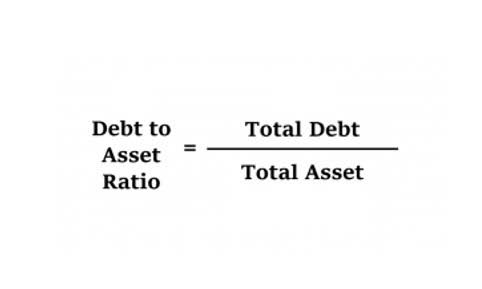Accounting Technology & Modern Accounting : An Ultimate Guide

Over the past decade, technology has driven a profound shift in the way accountants work. From tax workflow automation and tax strategy to data analytics, CPAs who embrace accounting technology trends are well-positioned to thrive long term. Tomorrow’s accountants may play an advisory role, welcoming business intelligence and procurement professionals and working to chart a strategic sourcing plan. They could leverage data management tools, including augmented reality, to humanize and contextualize spend data for the C-suite to make better decisions based on long-term value rather than return on investment alone. Bookkeeping tracks all financial transactions, from big sales to small expenses. It’s crucial for tech companies because it helps manage their finances and payroll.

Technology Industry Accounting Guide (
By establishing a system of accountability, you’ll help to nip any potential for insider fraud in the bud. With all accounting software and data hosted on the cloud, an accountant can access everything they need by simply typing their password in a browser anywhere in the world. They can work from home, in the office, or while visiting their grandparents in Arizona. Artificial intelligence, or AI, refers to a range of software solutions that go beyond simple automation. They’re still designed to complete relatively menial tasks, but the rules don’t need to be quite as narrowly defined as they have to be for automations. It benefits accountants, though, because smaller businesses will be able to produce useful information related to sales, profit, and revenue which would exceed their traditional capabilities.

What Are the Fundamental Accounting Processes Specific to Technology Industry?
- Automation technology is so big that it touches nearly every emerging trend in the industry.
- This enables company leadership to make informed decisions based on accurate financial reporting.
- From machine learning and artificial intelligence to data analytics, accounting technology can help you unleash your firm’s full potential.
- The rise of automations and AI wizardry will have an impact on the skills that accountants need.
Staff prefer agile working setups – they feel more trusted, but are still able to form strong relationships with colleagues while also remaining free to move around. Instead of the old-school double-entry system for record-keeping, blockchain will let you write transactions directly into a joint register that is both secure and publicly accessible. Currently, banks are getting the most use of blockchain technology, but we’d expect other sectors to catch up quickly.
Efficiently introducing new technology to your team
Many people might not realize that accounting has been revolutionary throughout its history, especially when it comes to driving the adoption of new technologies and adapting to new technologies. From AI-driven solutions https://www.bookstime.com/ to cutting-edge advancements in digital transformation, find out what’s next from Thomson Reuters at SYNERGY 2024. Get $30 off your tax filing job today and access an affordable, licensed Tax Professional.
What is the difference between traditional and modern accounting?

Can also offer a more cost-effective solution for tech companies seeking to manage their finances effectively throughout every growth stage, especially for startups and small businesses that lack the resources for in-house capabilities. Accounting technology encompasses a wide array of tools, software, and systems that play a crucial role in accounting. These solutions leverage advanced technologies like artificial intelligence, cloud computing, machine learning, blockchain, natural language processing, and accounting automation. Furthermore, modern accounting emphasizes real-time data accessibility and integration. Cloud-based accounting platforms allow financial information to be accessed from anywhere, at any time, facilitating better collaboration among team members and enabling timely decision-making. These systems often include robust reporting and analytics tools, providing deep insights into financial performance and trends.
- That’s a high level of push-back, and it aligns with similar findings indicating that businesses without any remote work options available are having a harder time hiring.
- These new technologies will create a marked improvement for efficiency and productivity, while also offering accountants a better balance between their domestic and work lives.
- The more finance professionals rely on AI to do what it does best—analyze and process a tremendous amount of data and take care of monotonous tasks—the more time humans will recover to do what they do best.
- Tech companies look at fixed costs (like rent) and the cost of goods sold (like making a product).
- In modern times, accounting, including management accounting, drove the adoption and improvement of ERP systems, which have revolutionized business processes.
Effective accounting for tech companies demands talented professionals, proven frameworks, and the experience to know exactly what success looks like. When a company adopts accrual accounting, it recognizes revenue when it is earned. For tech companies with long-term contracts, embracing accrual accounting enables leaders to have a much more precise understanding of future cash flows. We believe the finance and accounting function is a crucial business partner when it comes to business performance and the growth strategy of any company. Whether your tech or tech-enabled company is in the early stages of business or is a leading well-established enterprise, understanding and properly managing your financial and accounting operations is vital to continued growth. HighRadius Autonomous Accounting Application consists of End-to-end Financial Close Automation, AI-powered Anomaly Detection and Account Reconciliation, and Connected Workspaces.
- Artificial intelligence in accounting is projected to grow 32% year-over-year through to 2028.
- We understand the unique challenges that come with growing a business and have the expertise you need to reach your goals.
- Intelligent automation (IA) is capable of mimicking human interaction and can even understand inferred meaning in client communication and adapt to an activity based on historical data.
- Our panel provides perspective on the potential, perils, and place of GenAI in the wider context of artificial intelligence and automation.
- For accounting firms looking to grow, scale or expand offerings, automation enables accountants to leave manual work behind.
- Headlines have been completely riddled with talks of artificial intelligence taking over and stealing your job.

In this guide, we explore the latest accounting trends you need to know about and explain why they’re important to businesses of all shapes and sizes. Want to know what’s behind these numbers and how you can leverage the right emerging technology at your firm? Here are the top 6 accounting technology trends of 2024 and what it means for forward-thinking firm owners, CPAs, accountants, and bookkeepers looking to streamline production and efficiency. With today’s accounting technology in place, accountants can shift their focus from tedious tasks to more value-added work. This creates an opportunity capitalize on knowledge and expertise to build more meaningful relationships with clients and create a more sustainable, year-round business model that goes beyond tax season.
- When you’re a Pro, you’re able to pick up tax filing, consultation, and bookkeeping jobs on our platform while maintaining your flexibility.
- Instead of the old-school double-entry system for record-keeping, blockchain will let you write transactions directly into a joint register that is both secure and publicly accessible.
- Secure, cloud-based accounting technology allows accountants to exchange files, assign tasks, and collaborate on edits with clients and staff for an improved experience.
- But tech founders shouldn’t just see this investment in their finance and accounting team as something they need to do to comply with their investors’ wishes; it’s an invaluable opportunity to improve the management of the business.
- From the startup to the maturity stage, the need for accurate and timely financial reporting becomes increasingly important.
- From increasing accuracy to optimizing tax workflow to freeing up time for more value-added activities, technology has transformed the accounting industry—for the better.
Artificial intelligence in accounting is projected to grow 32% year-over-year through to 2028. Headlines have been completely riddled with talks of artificial intelligence taking over and stealing your job. Automation technology is so big that it touches nearly every emerging trend in the industry. Get the peace of mind to focus on running accounting for technology companies your business, thanks to our triple-checked financial statements. In addition, APIs can support succession planning and business continuity because the resulting automation is not reliant on the knowledge of a single person. As these trends continue, accounting is set to benefit enormously from continuing technological progress.

How to Approach Financial Reporting and Compliance in the Tech Industry?
At the heart of HighRadius’s R2R solution is an AI-powered platform designed to cater to all accounting roles. One of the standout features of the solution is its ability to automate almost 50% of manual repetitive tasks. This is achieved through LiveCube, a ‘No Code’ platform, that replaces Excel and automates data fetching, modeling, analysis, and journal entry proposals. It empowers the accounting teams, as any stakeholder who is familiar with tools like Excel can rapidly build applications without relying on IT, significantly enhancing the automation of accounting calculations. LiveCube combines the flexibility and familiarity of an Excel-like interface with pre-configured bi-directional data integrations with popular enterprise applications, including ERPs, CRMs and Data Warehouses.

